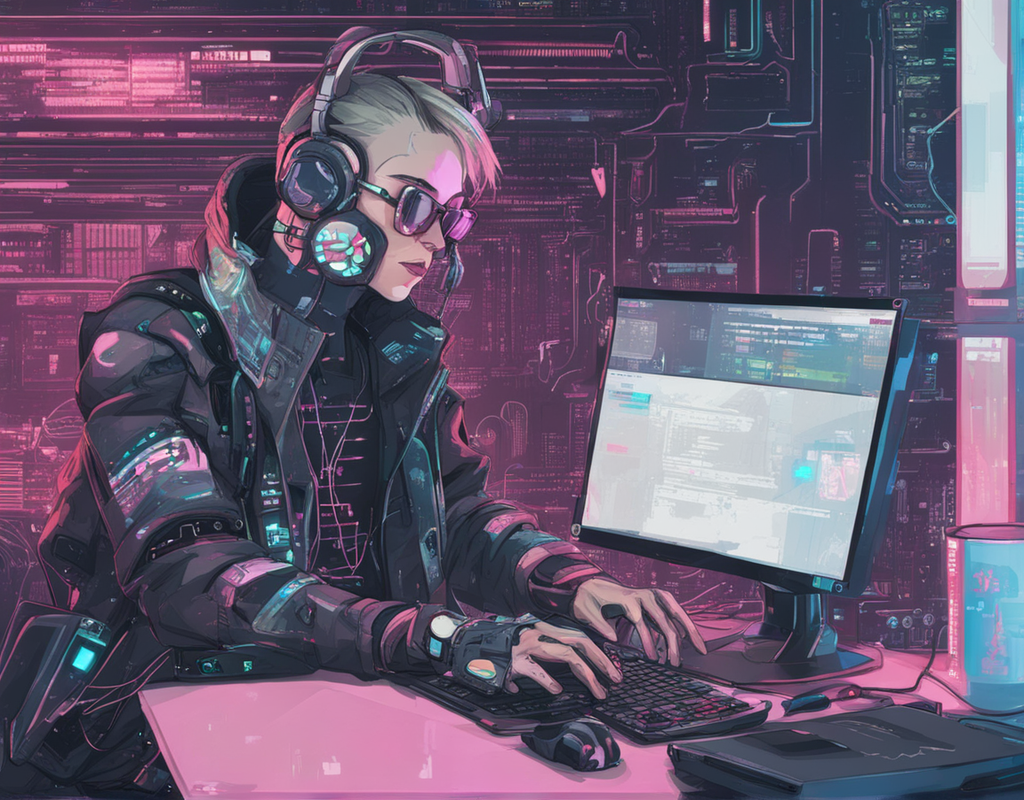At the heart of software development lies code. It's a set of sequential instructions that allow computers to run programs and applications.
The act of writing code has always rested squarely upon the shoulders of skilled programmers. It's been a distinctly human endeavor.
But the this process is undergoing a profound transformation thanks to the emergence of artificial intelligence (AI). This evolution is most evident in the realm of code generation, where AI systems can now automatically craft code for routine and repetitive coding tasks.
At first glance, the output of this automated code generation appears to be an astonishing boon for programmer productivity. But, as with the introduction of any novel technological advancement, the reliance on AI-driven code generation carries certain drawbacks.
Depending too much on automatically generated code runs the risk of gradually eroding the hard-earned skills of developers over time. The absence of regular hands-on coding practice makes it harder to refine your practical programming and security expertise, which your acquire through experiential learning.
Just as an over reliance on calculators can deteriorate your mathematical skills, excessive leaning into code automation might erode your coding skills. This may make it harder to recognize and manually pinpoint bugs, devise elegant coding solutions, and uncover vulnerabilities in your code.
Also, code authored by AI lacks the distinctly human traits of discernment and discretion. Despite its capacity to churn out code at an impressive scale, AI lacks an inherent understanding of the common sense and the intuition required to identify potential flaws.
This means that auto-generated code falls short of fully substituting the knowledge and experience that developers accumulate over years of coding. The role of humans, therefore, remains pivotal in overseeing and capturing those exceptional or challenging cases that automated systems fail to detect.
The path to the future lies in the harmonious fusion of machine-generated and human-authored code. Embracing the efficiency that code automation brings with it is prudent – but you should complement it with manual programming.
You should also carefully review and test all auto-generated code, and exercise your skill in crafting bespoke and intricate segments by hand. This approach not only allows you to maintain your skills and knowledge through consistent coding practice but also ensures that the human touch and expertise remain an integral part of the software development process.
Here's what we'll cover in this article:
- The Emergence of Auto-Generated Code
- Why You Shouldn't Depend Too Heavily on AI to Write Your Code
- Advantages of Automation
- How to Find Balance Between Human and AI-Generated Code
- Conclusion
The Emergence of Auto-Generated Code
Accelerated code production by AI for routine tasks really is a breakthrough in Software Development.
This transformative development grants machines the remarkable capability to autonomously craft lines of code. This is a result of breakthroughs in AI techniques such as deep learning and neural networks, which empower AI systems to meticulously analyze reservoirs of existing code.
During its analysis, AI discerns underlying patterns, stylistic nuances, and established conventions. This gives the AI sufficient knowledge to compose rudimentary code for commonplace programming tasks.
AI can now take the reins in producing boilerplate code for a variety of functions, including but not limited to login screens, menus, forms, and uncomplicated website operations. This computer program has collected a bunch of really good code for common tasks, and has learned from many different examples.
Armed with this wisdom, the AI can mimic and assemble these elementary code building blocks independently, allowing it to build prototypes or minimally viable products.
For example, let's consider the scenario of a new smartphone application that needs a login screen.
In the past, a programmer would painstakingly code this interface from the ground up. But the current landscape is vastly different, as AI can quickly generate the requisite standardized code for the login screen. The AI can do this since it's been exposure to many, many login screens that are present in existing applications. So it can reproduce these interfaces autonomously.
This remarkable capacity to swiftly produce code devoid of human intervention has empowered AI systems to quickly generate the foundational components that are critical to all forms of software.
While the capabilities of AI-generated code are limited at present, the automation of routine coding tasks holds the power to propel development cycles to new heights. And this may allow businesses to introduce applications and software to the market with unparalleled speed.
Entrusting repetitive coding responsibilities to machines frees up developers to focus their expertise on areas where human discernment and mastery are really important. This also allows devs to operate at the full extent of their abilities.
How AI Can Help Create Swifter Software Development Cycles
The introduction of automated code generation facilitated by AI brings various advantages and helps expedite the pace of software development cycles.
By delegating routine and iterative coding tasks (such as the creation of forms and menus) to AI systems, developers are liberated from the arduous task of manually reproducing these standard components time and again. Instead, they can use these pre-fabricated code modules generated by AI to swiftly assemble the foundational parts of their apps.
This new approach fosters an environment that encourages rapid iteration. Developers can efficiently iterate and refine projects by seamlessly substituting distinct AI-generated components as needed.
Before AI, crafting an entire feature like a checkout system for an e-commerce platform from scratch could typically consume days. But now, developers can seamlessly integrate auto-generated code and make it operational within hours.
Startups are taking advantage of this new-found efficiency, and they can quickly construct and assess prototypes or minimum viable products while establishing alignment with the market. Larger corporations can also respond nimbly to evolving customer needs through expedited software releases and updates.
The automation driven by AI frees up developers from the shackles of mundane and mentally exhausting coding tasks. And it also gives them the bandwidth to channel their energies into more sophisticated and innovative programming endeavors.
This, in turn, allows software development not only to be swifter but also to yield more advanced and groundbreaking software products.
With AI's adeptness at managing the foundational aspects of code, developers are poised to tackle bolder and more transformative coding projects. AI-assisted code generation will be a catalyst in hastening and enriching software development cycles throughout the entire software industry.
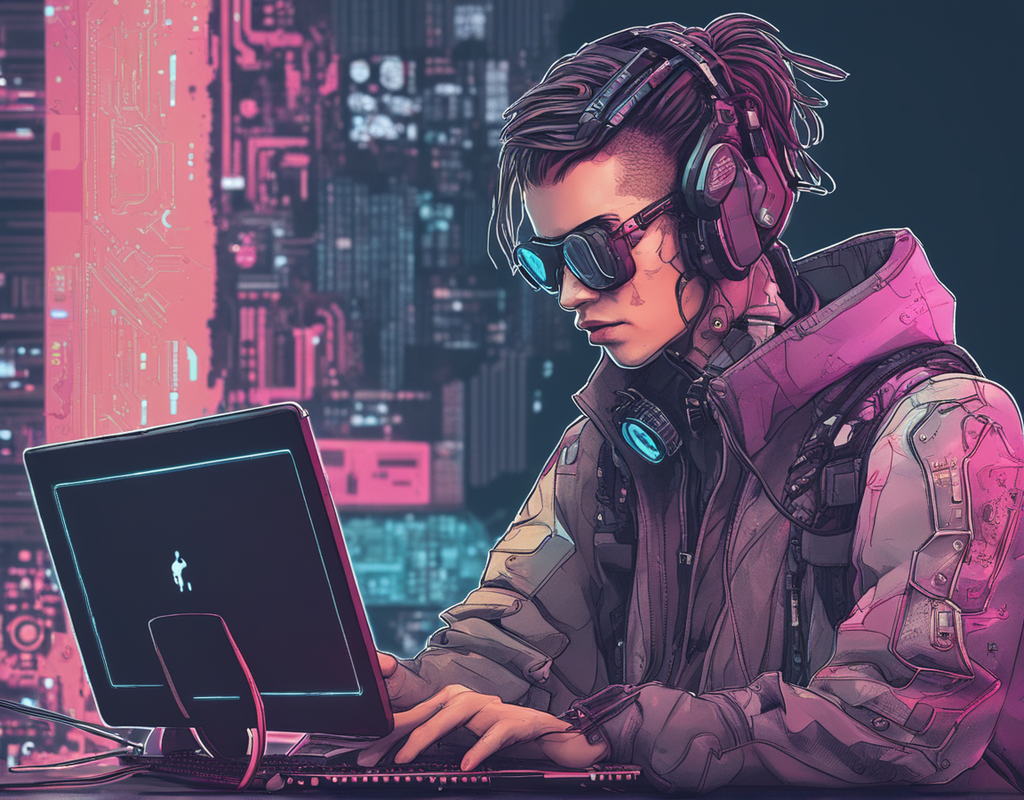
Why You Shouldn't Depend Too Heavily on AI to Write Your Code
It decreases your ability to write secure code on your own
Although using auto-generated code can help you create programs faster, relying too much on AI-generated code poses various risks.
For example, it can diminish your capacity to autonomously craft secure code. If you lean too heavily on AI-generated code as a crutch, you'll inadvertently miss opportunities to create whole features from scratch. This first-hand coding experience is important in honing the skill set you'll need for practicing secure development methodologies.
For instance, when you build a feature by hand that implements user authentication within an application, you get an intricate understanding of the strategies you can use to address security vulnerabilities like injection attacks or inadequate password storage practices.
But, if you resort to pre-fabricated AI modules for handling authentication, your depth of comprehension regarding the underlying steps and considerations is significantly diminished.
The less time you invest in building features from the ground up, the fewer occasions you have to firmly internalize security principles through applied practice.
As time progresses, your lack of hands-on coding experience could start to erode your hard-earned security skills you've cultivated. The gradual transition towards complete reliance on AI-generated code may gradually diminish your ability to construct code that resists hacking attempts, encompassing crucial aspects like robust encryption and comprehensive input sanitization.
Using code automation in an intelligent and strategic way can definitely amplify your productivity. But don't let this automation become a permanent substitute for the indispensable practical coding experience that effectively prepares you for safeguarding real-world applications.
Your coding skills will become rusty
Relying too much on auto-generated code can gradually erode the programming and debugging skills you've diligently cultivated over time. Coding, as a practice, necessitates good problem-solving capabilities you can only really gain through experience by meeting challenges head-on.
Similarly, the artistry of debugging code to find and fix errors and glitches is a skill that you can best hone by extensive hands-on coding practice.
But if you start using AI-generated code as a shortcut, bypassing the process of coding features from scratch, the hard-fought mastery of these skills could begin to wither away from disuse.
In time, you may find yourself facing a diminishing grasp of the finely tuned expertise you need for tackling intricate and unique programming problems.
For instance, you may encounter challenges when you're designing and coding specialized modules or tailor-made projects that lie beyond the realm of template-based AI generation.
Beyond that, depending too much on AI-forged code might result in a diminished ability to troubleshoot unforeseen errors that come up in real-world software. If you're using an AI's pre-constructed code that's undergone pre-testing for reliability, you may become ill-equipped to address new glitches in complex programs.
Basically, too much reliance on automation can relegate you to the role of mere assemblers of AI-built components. And eventually, you may forget much of the deep programming and debugging skills you've nurtured through all your many past manual coding challenges.
While some AI assistance can indeed prove valuable, don't forget the importance of learning by doing. Gaining and sustaining core programming and debugging skills are best nurtured through active and engaged manual coding experiences, without excessive automation.
You won't be able to detect vulnerabilities as effectively
Here's another important point: auto-generated code isn't able to replicate the cultivated security instincts that accompany human expertise.
The art of identifying potential vulnerabilities, uncovering edge cases, and pinpointing potential failure points requires an intuition that human developers progressively gain through experience.
AI falls short of possessing the comprehensive contextual reasoning abilities required to anticipate how code might be exploited or rendered dysfunctional in the intricate landscape of the real world. Within this complex domain, AI may inadvertently overlook unintended ramifications that lead to vulnerabilities.
If you become overly reliant on AI-generated code, you'll inadvertently give up valuable opportunities to refine your security intuition through direct, hands-on engagement.
The act of producing substantial code individually equips you with important insights into the security of your applications. You'll learn about the places where vulnerabilities may lurk, the strategies by which edge cases can be manipulated, and the potential for seemingly innocuous code to facilitate attacks when intertwined with human behaviors.
Over time, depending too much on AI-generated code may negatively affect your ability to critically scrutinize and probe your code for weaknesses. You may start to unreservedly place your trust in the inherent security of auto-generated code, assuming that it's inherently secure.
In reality, no software is entirely impervious to vulnerabilities. It is only through constant firsthand coding experiences that you can preserve your innate ability to perceive subtle vulnerabilities that may evade AI's gaze.
While AI augmentation certainly has its merits, it remains incapable of duplicating the reservoir of security knowledge you gain through navigating intricate real-world programming conundrums over an extended period of time.
AI-generated code also frequently exhibits diminished efficiency, convoluted interpretation, and increased complexity when contrasted with code crafted by human hands.
AI systems lack the innate understanding that developers have regarding code structure, comprehensibility, modularity, and deliberate design. Also, AI-generated code can't elucidate the underlying logic behind its creation. This makes it inherently challenging to troubleshoot, customize, and expand upon in the future.
Of paramount concern is the potential for developers to go from being active architects of code to passive recipients of AI-generated programs. While AI-generated code can definitely help amplify your productivity, it can't yet fully replace the hard-earned well of knowledge that human developers accumulate.
Relying too much on AI can result in the degradation of your coding skills and a decline in code quality over time. So don't let that happen - keep practicing your coding skills, analyze any AI-generated code, and be the key human element in the process.
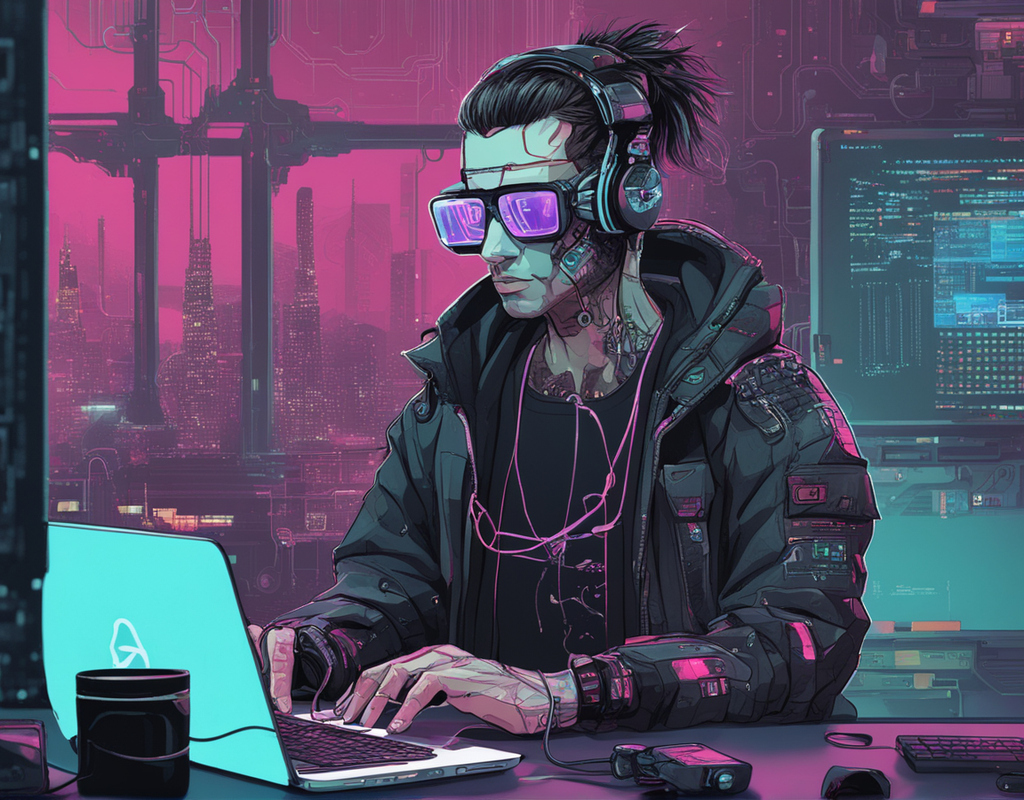
Advantages of Automation
Frees up developer time and cognitive resources
One prominent advantage of AI-generated code is its capacity to free up substantial amounts of developer time and cognitive resources.
Using AI to help handle repetitive and monotonous coding tasks, such as constructing user registration forms or crafting website menus, gives you more time. It also prevents you from having to rehash the same well-trodden paths, project after project.
Not having to laboriously code routine features over and over empowers you to divert your energies towards activities that are more gratifying and intellectually stimulating.
You can now channel the cognitive load that would have been expended on recalling the intricacies of implementing commonplace CRUD functions or designing shopping carts into endeavors that involve greater creativity. You can focus on tasks like building intricate systems, as well as pioneer the frontiers of cutting-edge programming.
Rather than squandering your abilities on yet another rudimentary login screen, if you harness the power of AI-generated code you can put your energy toward imaginative tasks that harness the full scope of human capabilities.
Through this paradigm, AI-generated code gives you the autonomy to dedicate your time and cognitive resources exclusively to more interesting and worthwhile endeavors – ones that truly align with your realm of expertise.
Establishes systems and minimizes errors
An additional advantage offered by AI-generated code lies in its ability to systematize procedures. This helps reduce the occurrence of simple human errors.
In instances where you manually perform routine tasks like designing forms or building menus, introducing small errors or bugs is not uncommon. Typographical errors in variable names, omitted brackets, or inadvertent off-by-one logic flaws can readily infiltrate your code.
But AI systems are able to consistently generate standardized code for repetitive tasks with an impressive and consistent precision. This reliability serves helps protect against the inconspicuous yet insidious bugs that often surface when you find yourself sidetracked or tired.
AI-crafted code modules assume the role of dependable points of reference, and help establish an ideal blueprint for executing routine tasks. You can gain insights from the machine-generated code by studying how AI implements features in a uniform and streamlined manner.
Over time, as you reuse AI-generated code, it can help you establish programmatic best practices, since these approaches have been honed through countless iterations. By strategically using auto-generated modules for common purposes, you can channel your human efforts toward more complex code, where your discretion and expertise distinctly shine.
The symbiotic interplay between AI consistency and human ingenuity culminates in an elevation of code quality and mitigation of basic errors.
Let's you focus on tough programming puzzles
AI-generated code lets you focus your efforts on resolving intricate challenges and propelling the horizons of programming forward, instead of always needing to reinvent the wheel.
By using an AI assistant to manage the foundational boilerplate coding for components such as forms and menus, you don't need to start every project from an empty slate. Instead, you'll be able get a running start, leveraging the pre-established foundations offered by auto-generated code to build more sophisticated applications.
When you don't have to worry about basic functionality and boilerplate, you're able to channel your expertise into the pursuit of more audacious and intricate programming problems. No longer constrained to the development of yet another basic CRUD application, you're empowered to set your sights on creating groundbreaking, category-defining products characterized by advanced interactivity and intelligent functionalities.
This newfound freedom will allow you to engage in pioneering endeavors, exploring innovative techniques, frameworks, and approaches that propel the state of the art.
The benefits you gain from thoughtful AI automation can help you, as a skilled developer, to redirect your time and energies towards the cultivation of breakthrough innovations.
With AI assuming the burden of repetitive tasks, human developers emerge as the driving force behind progress, steering the expansion of the software's frontiers and unlocking new realms of potential.
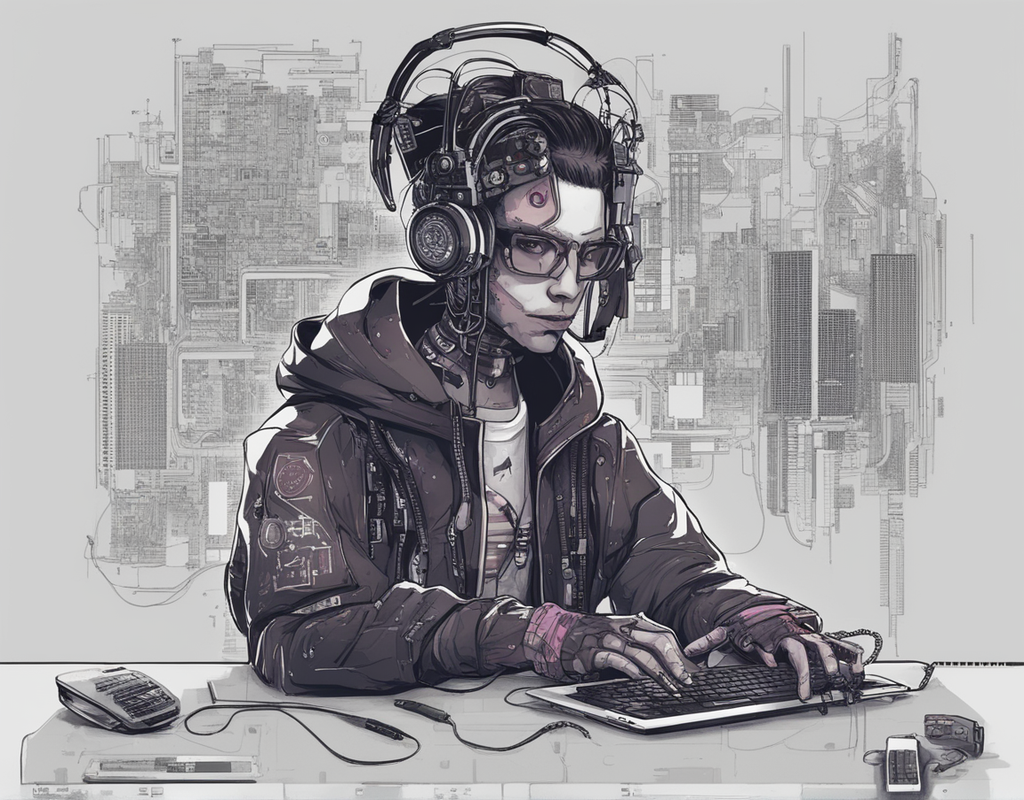
How to Find Balance Between Human and AI-Generated Code
Perform comprehensive code reviews
While AI-generated code undeniably helps devs be more efficient, the importance of human code review comes into focus. This helps safeguard against and recognize potential blind spots.
Even the most sophisticated AI grapples with inherent limitations when trying to envision the possible failures or misuse that its auto-generated code may encounter in the real world. Human judgment, discretion, and intuition, cultivated through lived experience, remain beyond the purview of AI's capabilities.
After all, code that exhibits robustness within isolated testing conditions can, upon deployment, unravel to reveal unintended consequences or vulnerabilities.
This means that subjecting all code to manual review conducted by human developers remains a necessity, even in instances where AI has contributed to certain segments. Human oversight serves as a vital checkpoint, as developers' contextual knowledge empowers them to anticipate edge cases and security threats that may elude AI's scrutiny.
From their panoramic vantage point, developers can preemptively pinpoint latent bugs and logic gaps that have the potential to cause future problems. This is accentuated by the fact that humans, drawing wisdom from past encounters with complexities, have an aptitude for foreseeing problems that might fly under AI's radar.
The ritual of manual review also helps developers become more familiar with the codebase, effectively cultivating a foundation for any future troubleshooting requirements.
While AI admirably helps you work on confined tasks, the capacity for holistic assessment of code reliability comes from human intuition based on years of experiential learning.
In the grand tapestry of software development, it is this quintessential human perspective that gives us the ability to go beyond the confines of bounded tasks, and comprehensively evaluate code.
Add tailored components to auto-generated code
It's a good idea to enhance auto-generated code by adding your own thoughtfully crafted custom sections. While AI excels in quickly producing code to address routine requirements, you should carefully and deliberately selecting certain intricate modules that you code yourself.
This strategy serves multiple purposes: it helps keep your coding skills razor-sharp by ensuring that you engage in consistent hands-on practice. It also gives you the latitude to personally navigate the intricacies of project segments where cookie-cutter AI generation just doesn't, well, cut it.
For instance, you might opt to manually code a recommendation algorithm that uses more imaginative data science methodologies. This is a realm distinct from the realm of conventional logic.
Adding these bespoke pockets of manually authored code combines the virtues of dependability and adaptability. Auto-generated sections serve as the bedrock upon which to erect the project, while you can infuse special innovation and nuance into modules that need more special treatment.
This synergistic collaboration – combining the efficiency of machine-generated code with the power of human creativity – engenders a framework where rapid development is achieved without compromising quality. Using this approach, you can create an environment conducive to creating optimized software that deftly balances proficiency and ingenuity.
Automate mundane tasks
As we've discussed, it's important to strike a balance between automating certain routine coding tasks with manual coding for more complex features and problems.
Tasks marked by repetition, such as the construction of user dashboards or the implementation of standard web APIs, are good candidates for AI-generated code. But again, developers should always continue to practice hands-on manual coding, as this helps maintain their proficiency.
For instance, less intricate tasks like creating forms and validating inputs can harness the prowess of auto-generated code to expedite the developmental process. On the other hand, more complex endeavors such as the formulation of specialized algorithms, warrant the personal touch of developers' expertise.
This equilibrium, characterized by a discerning allocation of tasks, strikes a harmonious chord between the efficient, clean code written by AI and the potential risks associated with the long-term deskilling of human developers.
Through this strategic interplay, AI-generated code transcends its role as a mere substitute and acts instead as an amplifier, increasing the capabilities of human developers.
Facilitate the adaptation of AI-generated code
As a developer, you'll need to comprehensively assess any AI-generated code you use in your projects. You'll often need to make alterations and refinements to that code, and then figure out how to incorporate it within your codebase.
This ability of human developers to discern the underlying logic and rationale governing auto-generated code – even in the absence of explicit documentation – is really important when you're making modifications.
You might need to restructure or optimize certain segments to enhance readability, performance, or alignment with internal coding conventions and adjoining modules. Especially in cases where security and efficiency are critical, blindly accepting code written by an AI isn't a good idea and you should proceed with caution. You'll likely need to validate, enhance, and then carefully combine it into the existing codebase.
Empowering skilled human developers with the agility to modify AI-generated code affirms a commitment to the long-term sustainability of the software's maintainability. By ensuring a continuous human presence in the developmental loop, you can help identify latent vulnerabilities and concealed imperfections.
Far from serving as passive recipients of code churned out by machines, you as a developer must adopt an active stance, engaging in a process of analysis, adaptation, and the ultimate assumption of ownership over AI-crafted code.
This dynamic approach culminates in the assimilation of AI-generated code into the fabric of robust, enterprise-grade software that seamlessly marries human ingenuity with machine-generated efficiency.
Mandate documentation
Human developers should meticulously document any code c byreated AI systems, as this can bring many advantages. Making it a rule that devs must create documentation for AI-generated code means that they'll have to deeply explore the auto-generated code, delving into its nuances with a meticulous eye.
This process compels devs to traverse the contours of the code's flow, logic, dependencies, and functions, as they try to craft documentation that is informative and helpful.
It can also help unearth any latent discrepancies, optimization prospects, integration requisites, or security vulnerabilities that might lie concealed within the labyrinth of machine-derived code.
Comprehensive documentation also serves as a cornerstone for code maintenance, debugging endeavors, and the continuous improvement of the codebase. In the evolving landscape of software development, future developers have to get to know the underpinning rationale and intricacies of the code. This is imperative for fixing bugs, adding novel features, or seamlessly integrating the code with other modules. Code that lacks robust documentation can become an inflexible and cryptic artifact as time elapses.
Given the inherently enigmatic nature of AI's "black box" functionality, requiring stringent human documentation plays a pivotal role in elucidating the inner mechanics of auto-generated code. This will ensure that AI-forged code is subjected to the same level of scrutiny and exposition that human-written code receives.
By championing comprehensive documentation, code becomes more maintainable and the lurking perils of AI systems languishing in obscurity are effectively averted.
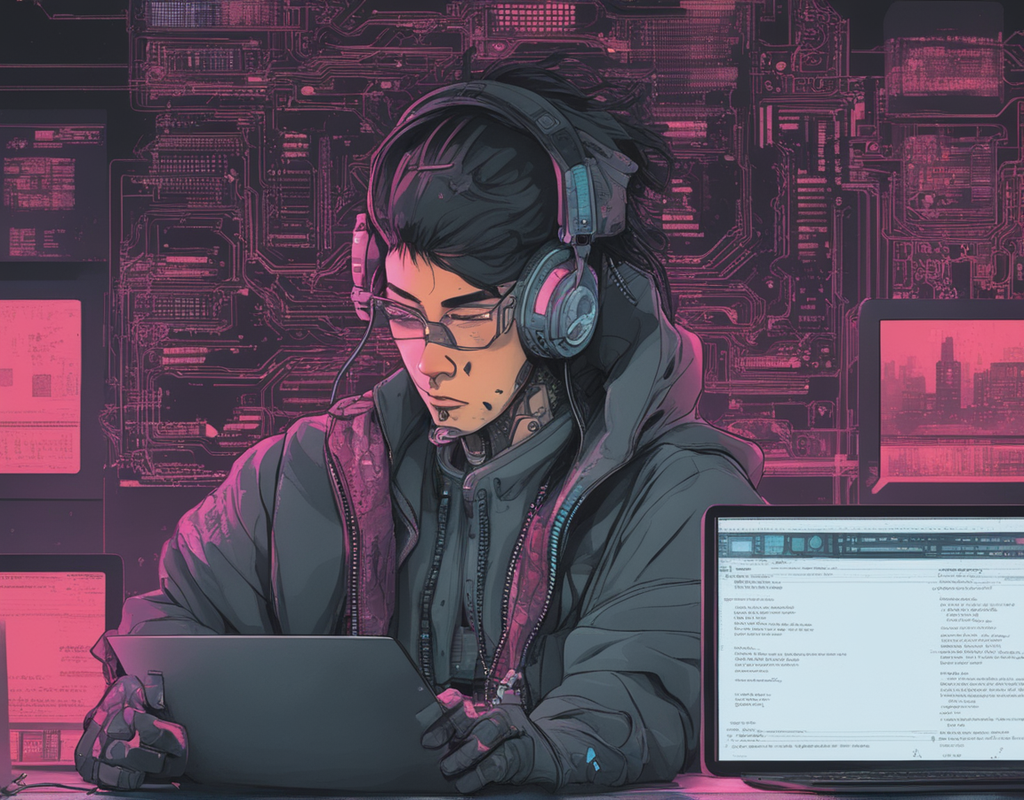
Conclusion
The allure of AI-generated code and the productivity it brings is undeniable. But relying on it exclusively over extended periods of time has the potential to erode your skills and knowledge base as a developer.
A more prudent trajectory is to strike a balance between machine and human generated code. You can use automation for routine coding tasks, while remaining vigilant and practicing your craft in the realm of software development.
After all, AI code generation tools are augmentations, not wholesale substitutes for the roles performed by developers. When used wisely, AI liberates developers from the drudgery of repetitive tasks, and gives them the temporal and cognitive bandwidth to engage in pursuits of higher value.
But human code review, skill cultivation, and oversight are indispensable, serving to identify the blind spots of AI tools and uphold the caliber of the software.
Collectively, AI and human developers weave a tapestry of mutual enhancement when judiciously blended. Automation brings raw efficiency, velocity, and consistency, while the human element imparts wisdom, subtlety, security, and sustainability. In harmonious concert, they empower software teams to function at an elevated echelon, each entity capitalizing on its unique strengths.
The trajectory of coding's future pivots upon this synthesis of machine-crafted and human-forged code. We can embrace the productivity dividends that AI engenders, while circumventing the pitfalls of relying on it too much. This will help us build software systems that are robust, secure, and inherently efficient.
You can follow me on Twitter, LinkedIn or Linktree. Don't forget to #
